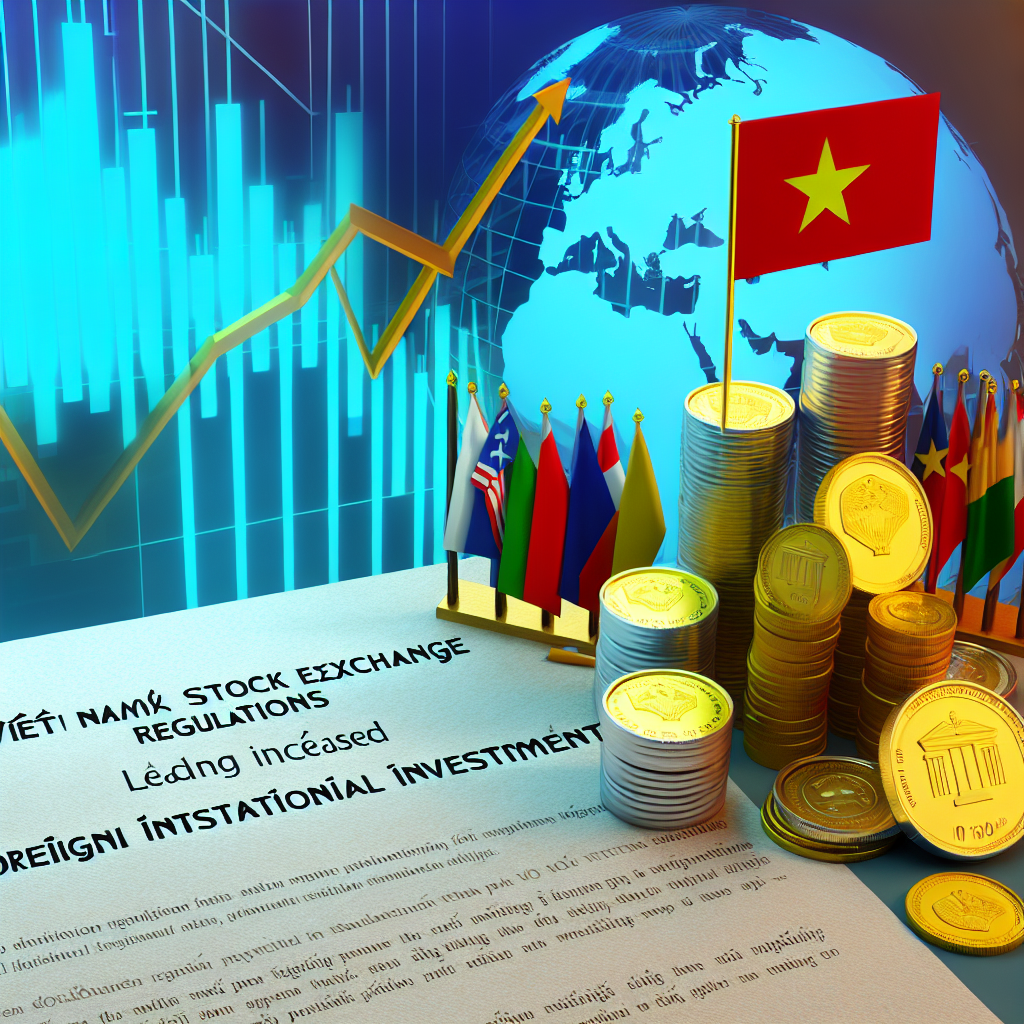Vietnam’s New Stock Exchange Regulations Attract Increased Foreign Institutional Investment
In recent years, Vietnam has emerged as one of the most promising markets in Southeast Asia, particularly for foreign institutional investors. The government’s proactive approach to reforming stock exchange regulations has played a pivotal role in this transformation. With a focus on enhancing transparency, improving governance, and facilitating easier access for foreign investors, Vietnam’s stock market is becoming increasingly attractive. This article delves into the new regulations, their implications, and the resulting surge in foreign investment.
Understanding the New Regulations
The Vietnamese government has implemented a series of reforms aimed at modernizing its stock exchange framework. Key changes include:
- Increased Foreign Ownership Limits: The government has raised the foreign ownership cap in several sectors, allowing foreign investors to hold up to 100% in certain industries.
- Enhanced Disclosure Requirements: Companies listed on the stock exchange are now required to provide more comprehensive financial disclosures, improving transparency and investor confidence.
- Streamlined Listing Processes: The process for companies to list on the stock exchange has been simplified, making it easier for both domestic and foreign firms to access capital.
- Improved Regulatory Framework: The State Securities Commission of Vietnam (SSC) has strengthened its regulatory oversight, ensuring compliance with international standards.
The Impact of New Regulations on Foreign Investment
These regulatory changes have had a significant impact on foreign institutional investment in Vietnam. According to the SSC, foreign investment in the Vietnamese stock market reached a record high of $1.5 billion in the first half of 2023, a 30% increase compared to the previous year. This surge can be attributed to several factors:
- Increased Confidence: The enhanced regulatory framework has instilled greater confidence among foreign investors, who are now more willing to invest in Vietnamese equities.
- Diverse Investment Opportunities: With the lifting of foreign ownership limits, investors can now explore a wider range of sectors, including technology, finance, and real estate.
- Attractive Valuations: Many Vietnamese companies are still undervalued compared to their regional peers, presenting lucrative investment opportunities for foreign funds.
Case Studies: Success Stories of Foreign Investment
Several foreign institutional investors have successfully capitalized on Vietnam’s evolving market landscape. For instance:
- Dragon Capital: This leading investment firm has significantly increased its stake in Vietnamese companies, particularly in the banking and consumer goods sectors, benefiting from the country’s robust economic growth.
- VinaCapital: With a focus on private equity and real estate, VinaCapital has attracted substantial foreign investment, leveraging the new regulations to expand its portfolio.
These case studies highlight how foreign institutional investors are not only contributing capital but also bringing expertise and best practices to the Vietnamese market, further enhancing its appeal.
Challenges and Considerations
Despite the positive outlook, challenges remain for foreign investors in Vietnam. These include:
- Market Volatility: The Vietnamese stock market can be volatile, influenced by global economic conditions and domestic political developments.
- Regulatory Risks: While regulations have improved, there is still a risk of sudden policy changes that could impact foreign investments.
- Infrastructure Limitations: The financial infrastructure in Vietnam is still developing, which can pose challenges for large-scale investments.
Conclusion: A Bright Future for Foreign Investment in Vietnam
Vietnam’s new stock exchange regulations have created a more favorable environment for foreign institutional investment, leading to increased capital inflows and greater market participation. As the country continues to modernize its financial framework and enhance transparency, it is poised to attract even more foreign investors seeking growth opportunities in Southeast Asia. While challenges remain, the overall outlook is promising, making Vietnam a key player in the global investment landscape.





